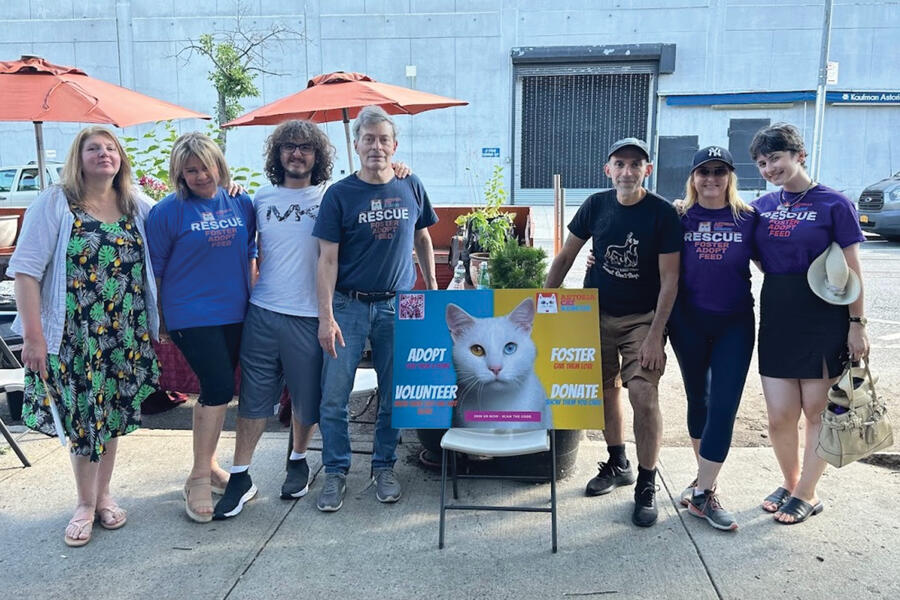Charlotte Conley, SAIS '80 (MA), has had a thriving career in academia and corporate finance, but her true calling is animal rescue.
In the early 2000s, while working for the State University of New York as an academic program director for partnership schools in Italy and Greece, Conley became involved with animal rescue efforts in those countries. In Greece, she helped run a spay and neuter program that succeeded in neutering approximately 300 dogs and cats every month.
"The amount of community involvement was truly inspirational," Conley says. "I found this type of work was much more rewarding than my income-earning work."
Returning to New York in 2008, Conley discovered that the city faced its own animal overpopulation crisis.
Things have only gotten worse since the onset of the COVID-19 pandemic, with recent estimates suggesting that New York City's five boroughs harbor somewhere between 500,000 and 1 million cats.
Inspired by her mother and a close family friend, both of whom were devoted to community cat care, Conley channeled her passion into action. She continued her academic work part time and in 2014 launched Astoria Cat Rescue, based in Queens.
Securing funding is a constant challenge, Conley says, and the rescue relies solely on volunteers.
Stray cats endure harsh conditions, including extreme weather, starvation, dehydration, and injuries. Many continue to reproduce, leading to rapid overpopulation. "Without intervention, a single pair of unspayed or unneutered cats can produce hundreds of offspring, perpetuating a cycle of suffering," Conley says.
In addition to giving feral stray cats food and medical care, volunteers trap cats, arrange to have them spayed and neutered, and then return them to their colonies—a strategy known as TNR—to keep them from reproducing. Kittens and friendlier older cats, who may have been lost or abandoned by previous owners, can be adopted as pets after potential owners are thoroughly vetted.
In 2024 alone, Astoria Cat Rescue fed 18 cat colonies, providing daily sustenance to over 150 cats, facilitated the adoption of 85 cats, spayed and neutered 308 cats, and hosted eight adoption events.
"If anyone is looking to feel needed and experience the benefits of community service, animal rescue is constantly rewarding," she says. "The appreciation shown from intelligent, loving creatures makes every day memorable."
Keep your classmates informed with a submission to alumni notes. Submit your information via email to: classnotes@jhu.edu. (Due to production deadlines, your information may not appear for an issue or two. By submitting a class note, you agree that Johns Hopkins can publish your note in the print and online edition.)








